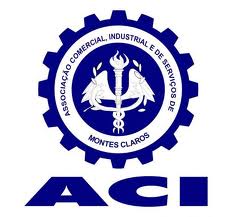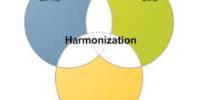SUMMARY
There are a number of industries that are growing very fast in Bangladesh. Among them pharmaceutical sector is one. For the last few years Bangladesh has earned a lot of foreign exchange by exporting drugs throughout the world. In addition Bangladesh is now self dependent in this sector. To carry on this envelopment the drug act was first published in 1982. The ultimate result of this set is that now-a-days Bangladesh is the most promising country among the least developing countries in this sector.
Advanced Chemical Industries Ltd. is very much faithful to the country in this purpose. Advanced Chemical Industries, started its operation in Bangladesh in 1992, has now I grown to become the nation’s one of the leading pharmaceutical companies. Advanced Chemical Industries manufactures a range of dosage forms including -Tablets, Capsules, Dry Syrup, Syrup, Suspension, Injections, MDI, Cream, Ointment etc.
Advanced Chemical Industries is the largest exporter of pharmaceuticals from Bangladesh in developing countries, such as-
Present International Markets – Sri Lanka , Myanmar, Vietnam, Yemen, Somalia, Afghanistan, Guatemala, Hong Kong. Bhutan and Markets.
Under Development – Nepal, Kenya, Sudan, Cambodia, Macau.
Technology carries the promise of tomorrow. The benefits of technology belong to all of us benefits of that create new opportunities and open doors to a better. The Advanced Chemical Industries has been designed in a way to ensure highest-possible quality at every stage of manufacturing and quality control. World-class facilities are being employed in each and every step including mixing, filling, labeling, batch and other procedures to ensure manufacturing of world class products.
Objective of our internship
For the last four years, we went through several courses of pharmacy to complete our graduation. We studied many topics and matters, but we would not see their implications in pharmaceutical industries. So our objectives are-
* To see and understand how a pharmaceutical company runs, how different departments are working.
* To know how GMP or cGMP is applied in the plant.
* To know about SOP.
* To know how pharmacists solve the manufacturing problems
* To know how quality is assured as well as controlled.
Advanced Pharmaceutical Industries
Advanced Chemical Industries Limited, one of the fast growing pharmaceutical companies in Bangladesh, Has been manufacturing and marketing a wide range of pharmaceutical finished products with strict standard of safety, quality and efficacy to ensure public healthcare thought uncompromising scientific and professional approach since 1992. The company has sailed its journey with the involvement of a group of physicians, inspired with love for mankind, with innovative mission and global conception and ethical practice in pharmaceutical sector of Bangladesh.
In 1973 the UK based multinational company ICI, plc established a subsidiary in Dhaka known as ACI in Bangladesh Manufacturers Limited. In 1992, ICI plc divested its share to local management, and the company was renamed Advanced Chemical Industries (ACI) Limited. ACI formulates and markets a comprehensive range of more than 387 products covering all major therapeutic areas, which come in tablet, capsule, powder, liquid, cream, ointment, gel ,ophthalmic and injection forms. ACI also markets world-renowned branded pharmaceutical products like Arimidex, Casodex, Zoladex, Atarax etc. from world-class multinational companies like ASTRAZENECA, UK and UCB, BELGIUM in Bangladesh.
ACI is actively engaged in introducing newer molecules and Novel Drug Delivery Systems (NDDS) to meet the needs of the future.ACI introduced the concept of quality management system by being the first company in Bangladesh to achieve ISO 9001 certification in 1995 and follows the policy of continuous improvement in all its operations. Aligned with the concept that a pharmaceutical must ensure effective management of environment, ACI complies with standard environment management policy, thus adorned with EMS 14001 in 2000.
ACI maintains a congenial and supportive relationship with the healthcare community of Bangladesh, with the belief that business excellence can only be achieved through pursuit of quality by understanding, accepting, meeting and exceeding customer expectations. The management of ACI, a competent team of professionals, thus operates with a progressive attitude to provide effective solutions to satisfy the customers’ needs, through its products and services of uncompromising quality. Advanced Chemical Industries Limited is always committed to assure the best quality pharmaceutical products and best services to the customers.
The company mission is to serve the mankind, especially the distressed and poor ailing people and our vision is to be regarded globally as a Quality pharmaceutical manufacturer through the best quality pharmaceutical products. Bearing this in mind, their technical experts (pharmacist, Chemists, Biochemists, Microbiologists Analysts and other professionals) skilled and trained staffs always try to leave no stone unturned in their professional works by following the US cGMP, British & WHO GMP guidelines and the guidelines & instructions of the Drug Administration & Licensing A authority of Bangladesh to ensure the production of quality medicine.
Ever since “Advanced Chemical Industries Limited” at GLP (Good Laboratory practices) have always been performing with a strict discipline to follow the company professional ethics. By virtue of the highest quality of drugs, the company has already obtained the confidence and trust of doctors and patients all over Bangladesh and earned excellent reputations in the market through introducing very exciting new molecules and dosage forms in many therapeutic areas.
| Head Office International Marketing DepartmentACI LimitedNOVO Tower (9th Floor) 270, Tejgaon Industrial Area Dhaka-1208, Bangladesh Telephone (PABX) +88-02-8825918, +88-02-8825924 Fax +88-02-9885643 E-mail : miraz@aci-bd.com export@aci-bd.com ashraful.islam@aci-bd.com
Web: www.aci-bd.com
| Plant Narayanganj, Hajiganj,Dhaka, Bangladesh |
INTRODUCTION
In plant training is now a days the crying need for them who are entering in the world of profession, and this training is necessary to know vastly and practically the application mode of current scientific and management issues aiming to know them in correct way. The training serves as the bridge that connects the scientific theories with their practical application, in other words the link between the traditional educational institutions and commercial organization.
The Advanced Chemical Industries Ltd is the leading pharmaceutical company of Bangladesh. This company manufactures product not only for the market of Bangladesh but also for the international market because they manufacture products having higher quality. They maintain GMA in the production area and also they have well developed SOP. Besides they do IPC properly that is very important thing for manufacturing quality products brought to the dispensing area.
ADMINISTRATION
DEPARTMENT
- Prepare monthly manpower statement: The administration department has to prepare the monthly manpower statement of the plant by the 5th of every month. It includes DL to the Director. To add to this, it also prepares the daily manpower statement.
- To maintain and update personal files: One of the outstanding jobs the administration department is to maintain and update personal files of all employees of the industry. Confirmations of jobs, promotion, transfer etc. are included in this file.
- Informing policies: The administration department generally informs the managers and employees regarding personal policies and procedures of the company.
- Coordination of performance appraisal: This department coordinates and monitors performance appraisals of plant employees. The process of evaluating of performances is happened in many methods.
- Asses training: The administration department generally asses the training needs of personnel in light with cGMP (current good manufacturing practice) and others related HRD issues. The training also includes- GMP, Safety, and Laboratory standard and workplace environment in the pharmaceutical industry.
- To arrange induction training programme: To arrange the orientation program that is arranging induction training program for the new employees of the industry is the job of the administration department. As soon as each employee joins, she or he is introduced with the entire department and he is also taught the functions about the operations of the company.
- Preparing and arranging in plant program: The administration department prepares and arranges the in plant training programs for the students of different universities. This is an extra typed job of the department and to do this all kind of coordination is done by the department itself.
- Dealing with industrial related issues: Generally the industrial related issues such as negotiation with employees union, ensuring the labor rights etc are done by this department.
- Ensuring proper implementation of Labor Law: This department one of the main jobs is to ensure the proper and exact implementation of the Labor Law that is applicable to the factory workers and the employees.
- Taking Disciplinary action: This department has the right to take any kind of disciplinary action including punishment, suspensions and termination from the job.
- Maintaining liaison with Government Regulatory bodies: Administration keeps relation with the following Government regulatory bodies for the legal aid. Or helps in any accident or medical aid:
- Ministry of Health, Peoples Republic of Bangladesh
- Office of Directors of Labor
- Explosive departments
- Fire station of Naraynganj
- Naraynganj thana, NSI, DB and SB
- The Pourosova of Naraynganj
- Customs and Vat, Narynganj circle
- Office of the Deputy Commissioner, Naraynganj
- Office of the Superintendent of Police, Narayanganj
- Civil Surgeon, Naraynganj
- Supervise official works: To supervise and monitor the attendance of the employees, job cards regularly and prepare monthly summary and daily absent reports etc are the jobs of the administration.
- To monitor leaves: The administration monitors leaves of plant employees. Each employee has a leave file that integrate all kinds of leaves like-
- Annual leave
- Medical leave
- Casual leave
- Special leave
- Maternity leave
- Leave without pay etc.
- Ensuring safety & Health: To ensure the safety & health of all employees and company assets as well as ensuring proper security management of the plant are the jobs of the administration department.
- Handling visitors: The work of handling external visitors and arranging all necessary uniforms and other accessories is done by the administration.
- Supervising: The administration has to do several supervising jobs as follows:
- To supervise transport tools (distribution, repair and maintenance)
- To supervise canteen management.
- Supervise of all cleaning services of the plant (House keeping and gardening etc.)
- Others Responsibility:
- To supply all official resources to regulate employees daily work
- To look after plant house keeping
- To ensure plant security
- To ensure tale-communication plant
- Time keeping
- To look after cleaners
- Liaison with traders
- Maintain industrial relation
- General administration
- Salary
- Environment monitoring such as – Sound, Air and Water pollution
- Working time recording
- Liberty granted employment entrance and exit
- Bill of Gas, tax, electricity
WAREHOUSE
DEPARTMENT
| Warehouse is the place where materials for the production are stored for further use and distribution. The Advanced Chemical Industries Ltd. has a striking warehouse where raw, packaging and finished products are stored with great care. This warehouse has two units. They are as follows- |
1. Ware house 1 (For Raw and Packaging Materials)
2. Ware Hose 2 (For Finished Products)
There are different segments of the warehouse. They are:
In the Quarantine area raw and packaging materials are preserved for the approval of the Quality Assurance Department.
In the Released area raw and packaging materials are preserved here with great safety and care which are approved by the QA. This area is the heart of the ware-house.
Raw materials, packaging material and finished products that fail to get approval from the QA are retained with a lot of security in the Rejected area.
In the Finished product area generally finished products are installed here for distribution in the market.
In the Cold Storage area those products are kept that are heat sensitive and flammable materials.
The work of warehouse is differentiated into two categories. They are:
- Routine works
- Periodic works
Routine works done by warehouse:
- Arrival of materials: Raw & packaging materials arrive at the factory premises by different Supplier with two copies of delivery “challan & invoice”.
- Invoice checking: The concerned authorities of the warehouse verify the invoice & accordingly they will check whether the shipping mark is logged on the container or not.
- Physical inspection and receipt/Discrepancy report: After completing the physical inspection of the raw materials, the materials are received on the basis of SOP if there is no discrepancy.
- Quarantine storage: Raw and packaging materials are stored in this stage before the checking by the QC and approval from the QA.
- Log book entry: To entry the actual received quantity of materials into the log book and copy to MIS Department, Shipping Department, Production Planning (Factory), Warehouse.
- MRR for imported items: After receipt of materials, MRR is completed & the quantity of materials undergoes computer entry to the final stock. Three copies of MRR send to Shipping Dept, A/C Dept, and Warehouse.
- QC sampling: Warehouse authority will inform the QC for sampling and after doing sampling and analyzing the QC will send the report to the QA.
- QA release / reject: On the basis of QC analysis & pass report QA give ‘released tag’ on each & individual container or box. If the material fails to pass QC test, QA give rejected tag on each and individual container or box.
- MRR / Failed MRR: Send copy to A/C Department, Shipping Department, and Warehouse.
- Disposition Of released / rejected materials: Released materials are placed in the released area for dispensing and Rejected materials are placed in the rejected area until further decision for final disposition is made.
- Dispensing: Only the released materials are dispensed as per requisition of production department following respective SOP.
- Distribution: Most of the dispensed materials are carried and supplied to respective department by Warehouse personnel.
- Computer entry of requisition: Inventory updating is done by computer entry of issued requisition and copy to e-mail for users.
- Monthly inventory report: Monthly updated inventory report is sent to MIS Department, A/C Department, and Purchase Department.
Periodic works done by warehouse: (Export in the foreign market)
- Export Order: Having information from international marketing department with Invoice, packing list and export permission issued by Drug Administration.
- Apply to custom: To apply for export to customs office with Export from duly filled by Warehouse invoice, packing list and export permission issued by Drug Administration.
- Delivery to C&F agent: In presence of custom inspector materials delivered to C & F agent.
- Receipt of airway bill: International marketing department send airway bill for necessary information & action.
- Submission to custom: Paying the air way bill to custom office with monthly return.
Sampling Booth of warehouse:
After reaching the raw material in the warehouse, the QC officer does the sampling of the raw materials in the sampling booth.
Sampling is done by a sampler that consists of three parts- upper, middle and bottom. The sampling is done on the basis of FIFO (First in First Out) system. For active ingredients, every container and for excipient, (Ön+1) containers are sampled (where n = total number of the containers).
Dispensing areas of Warehouse:
A dispensing officer is responsible all the time for dispensing the raw materials to the production and packing materials to the packing areas. Following things should be checked by the dispensing officer in all phases:
- To check that only those materials that are approved have been
- To check that the area of dispensing is absolutely free from others materials.
- To check whether cleaning is done with IPA and savlon solution.
- To check that correct quantity and approved quality of materials are being dispensed as per requisition.
- To heck that materials come first are being dispensed first, to follow FIFO (First In First Out).
Miscellaneous things:
There are some other things that are maintained in warehouse. They are-
- To keep warehouse free from attack of insects and rats, some insect or rat killer devices are being used.
- To protect warehouse’s material from dust, the building is built in a systematic way such as the double door system.
- Raw materials and finished products are easily identified here with the help of an index which includes different code for different area also.
- Packaging materials in warehouse are kept or placed following Alphabetical order.
—————————–
NOVEL DRUG
DELIVARY SYSTEM
ACI is actively engaged in introducing newer molecules and Novel Drug Delivery Systems (NDDS) to meet the needs of the future.
NDDS department is a new plant in ACI which is established for the purpose of developing some special drug delivery system such as sustain released drug delivery, controlled drug delivery etc. Now this department is using to develop only pellet formulations with target drug delivery and time released drug delivery system. By increasing or decreasing coat of Pellets & materials in Pellets in capsule, it gives sustain release or controlled release of drugs, which can not be adequately possible in tablet form. Pellets production is very rare in Bangladesh. It only produced 2-3 company in Bangladesh. ACI Ltd is one of the company that produced Pellets. The Pellets products that are generally produced in ACI Ltd. are – Omeprazole, Propanolol, Diclofenac, Zinc, Folic acid, Pellets, Vitamin D-complex, Iron, Ascorbic acid etc.
Machinery Used in NDDS:
| Unit | Machine name | Source | Capacity | Model | No. of spray Gun/Motor/RPM |
| 1 | Two Tray dryer | ||||
BECON-India,
Bangladesh48 TrayN/A
2Fluid bed processor/coaterSupplier Company Anis Pharma -India5 kgAPCG -225
3Fluid bed processor/coaterSupplier Company Anis Pharma -India
100 kg
APCG 450 4Miller MachineIndia
20 kg Two Motor-2700 RPM5Coating pan, Paristaltic PumpPharmanechi -India 16Fluid bed granular coater,
China300 kgACIFBC-300
5 Spray Guns7Shifter MachineGanson
During Visiting Product Running:
| Product Name: | Generic Name: | Active Ingredient | Excipients | Batch Size | Batch no: |
| Omeprazole 8.5% w/w F/c Pillets |
Omepprazole
Omeprazole 221.00 Kg (Core)Lk-07
Neutral seeds
Lactose
Mannitol
Sucrose
Disodium hydrogen phosphate dyhydrate
Sodium laurul sulphate
Purified talc
Providone
Sodium hydrate
Purified water
Process of Omeprazole:
Sugar seed load
Binding solution+ Active
Spray coating
Seal coating
Enteric coating
Requerments Parameters for the process of Omeprazole:
- Seal coating temereture: 50 + -5C
- Enteric coating temperature: 30+-5C for omeprazole.
- Required time—8 hour.
Steps of Procedure:
First Step:
Sugar is meshed in a mesh machine.
Second step:
Load the materials in mixing tank and run also peristaltic pump to spray the solution on materials in that is loaded in mixing tank.
Mix first active and excipients with solutions.Then added after sometimes sugar dust. Sugar dust is given so that the active will be better binding. Sugar dust size0.5 micron.
Third Step:
Unload the materials then dry (after 1 hour the materials shacked by hand for uniform dry.) initial temp.48c, final temp.50c
Change Over Procedure of The NDDS Room:
For room:
Water (Tap water) Savlon Water Mop.
For seal coating:
Water Mop (Dry with cloth)
For Sr + TR Coating:
Use IPA (Iso Propyl Alcohol)
NaoH
Huge water
Clean with Duster
SOLID DOSAGE FORM
| A |
OF OLD PLANT
CI Pharma’s biggest unit is the Solid department which is also the most important department of any company. From this unit most of the returns on investment come for the company.
DISPENSING UNIT
Dispensing is the first step in any pharmaceutical manufacturing process. Dispensing is one of the most critical steps in pharmaceutical manufacturing; as during this step, the weight of each ingredient in the mixture is determined according to dose.
In “ACI” the dispensing (Old Solid) is done by purely manual by hand scooping from primary containers and weighing each ingredient by hand on a weigh scale, manual weighing with material lifting assistance hand Bag lifters, manual or assisted transfer with weighing on weigh table.
Machinery and Equipments:
- Weighing scale (Floor type)
- Hand Lifters
- Drums
- Spoons
- Trolley
- Pass box (New solid Plant)
- Log book
In process Check in dispensing:
- Weighing accuracy
- Dust control (laminar air flow booths, glove boxes), during
manual handling
- Lot control of each ingredient, material movement into and out
of dispensary should be considered during dispensing.
- Balance calibration
- Close Monitoring
- Air Control
- Humidity Control
- Experienced Operator selection
Weighing control:
Weighing of raw material is the first operation in a production process. A fault at the weighing stage can cause an expensive batch failure. Therefore, it is vitally important that manufacturing of a medicine begins with the proper emphasis on weighing. The problems that intricate weighing operations may involve:
- Contamination during weighing
- Weighing of incorrect amount
- Weighing of wrong materials
- Weighing into an unclean container
- Weighing into a wrongly labeled container
The following basic requirements need to be satisfied for dispensing raw materials:
- Dispensing area must be isolated from the manufacturing operations and supplied with clean air.
- Weighing stations must have adequate dust extraction facility to avoid cross-contamination and to protect operators
- Provision of humidity controlled weighing for protecting moisture sensitive materials must be adequate
- Balances with suitable weighing ranges must be employed
- Balances must be clearly marked with maximum and minimum range to be weighed to suit the sensitive and precision
- Provision for washing and drying of weighing utensils must be made
- Other weighing facilities e.g. oils/liquids (flammable and non flammable), Milling/sifting, before weighing etc. must be developed as required.
- Balances must be checked with the standard weight daily by the production staff and periodically by the QA personal ensuring accuracy of the balances in use using “reference standard” weights
- During weighing operation two persons must be present to check and certify the correct weighing .Both of them should sign the weighing sheet.
During weighing operations both the operators must ensure:
- Checking he requisition or process sheet for the items needed
- Checking the container label of the materials to be dispensed
- Checking the quantity being weighed
- Following the correct procedure of weighing
- Checking the label and cleanliness of the container which the material is being dispensed into.
GRANULATION UNIT
Granulation:
Granulation is the process in which the powder particles of raw materials are made to form large particles in order to facilitate compression for the production of tablet. All the materials are received from the dispensing unit and granulation is performed. For suitable granulation, t is required to have 30-40% powder and 60-70% granules and also 1-5% moisture in compressing particles. In granulation process, these are maintained accurately according to the QC provided specifications. In ACI pharmaceuticals Ltd the following granulation processes are used for tablet manufacturing.
Granulation done for-
- To improve the flow of powdered materials by forming sphere like or regularly shaped aggregates and
- To improve the compression characteristics of the mix (blend.)
- To prevent segregation of the constituents in the powder mix.
In this unit two types of granulation processes are performed:
- Dry Granulation
- Wet Granulation
Wet Granulation:
This is the most widely used and most general method of tablet preparation. Its popularity is due to the greater probability that the granulation will meet all physical requirements for the compression of both tablets. The wet granulation of the tablet production is essentially a process of size enlargement, sticking particles of drug and excipients together using an adhesive to produce a granular product with improved flow properties and increased ability to cohere under pressure.
Wet granulation method is performed with the following steps in ACI-
- Accurate weighing of active ingredients and excipients
- Preparation of granulating paste/slurry by suitable solvent with binder, preservatives etc.
- Dry mixing of active ingredients, diluents etc.
- Wet mixing (Dry mixture + paste)
- Wet sieving (use granulator) Mesh size 6 or 8 is used here
- Drying (usually fluid bed dryer used and required moisture is maintained here)
- Dry sieving and Mesh size 14 is used here
- Lubrication and blending
- Discharge (into double polythene bag and close lid of drum tightly and send to compression unit for compression)
Dry Granulation:
- This process is applied for those drugs which are sensitive to moisture. This process is also used for water sensitive powder that needs granule formation before compression.
- Dry granulation method is performed with the following steps in ACI-
- Accurate weighing of active ingredients and excipients
- Dry mixing of active ingredients, diluents etc.
- Slugging or pre-compression
- Milling and sieving
- Lubrication
- Discharge for compression
Checklist for in-process inspection in granulation unit-
- Observation No.
- Date
- Observation No.
- Time
- Room condition
- Temperature and humidity (OK / NS / DNC)
- Cleanliness and arrangement (OK / NS / DNC)
- Segregation of materials/products (OK / NS / DNC)
- Identification of level (OK / NS / DNC)
- Free from previous material/product/product residues/documents (OK / NS / DNC)
- Correctness of batch process sheet (OK / NS / DNC)
- Containers of starting materials (OK / NS / DNC)
- Entry in batch process sheet (OK / NS / DNC)
All of these are done and approved by QA department and samples are approved by QC department.
Machineries used in Granulation Unit
(Old Section)
| Name of the machine | Model | Purpose | Origin | Capacity |
| Bin blender, | Rpm-24max | Ganson | 200kg | |
| Fluid bed dryer (FBD) – CALMIC CISA SPA | Italy | 60kg/batch, | ||
| Fluid Bed Dryer (FBD), Ganson | Ganson India. | 200kg | ||
| Lifting and Tilting | Ganson India. | |||
| RMG-Ganson | GMP | India. | ||
| Paste mixer | GMP | Ganson India. | 200L | |
| Product Lift | GMP | Ganson India. | ||
| Planetory mixer |
Min28,120maxUK.30kg,Granulator.(Old virsion)
Uk Lifter 2pich Ganson India.
Machineries used in Granulation unit new plant
| Unit | Name | Model | Purpose | Capacity /RPM | Origin |
| 1 | Super mixer/ Granulator,CapacitySource: 400v-3F-50Hz, Motor: 100HP+1.1kw, Origin: Taiwan. |
YC-SMG-800,Mixing/Granulating240-300 kg/batch,Yenchen Machinery Co. ltd.
Taiwan2Wet granulator
YC-WG-12Granulation80~200 kg/hr,
Power: 400v-50Hz, Pore size: 6mm,
Motor: 7.1/5HPYenchen Machinery Co. ltd Origin: Taiwan.3Fluid bed dryer/ Granulator,YC-FBDJ-300,Drying250-300kg/batch,
Motor: 54HP, Power:400v-3f-50Hz, RPM: Impeller (1500), Chopper(3000).
Yenchen Machinery Co. ltd Origin: Taiwan4Lifting and Tilting device, , ,
YC-LS-300,Product Transfer300kg/batch,
Motor: 5HP, Power: 400v-3f-50HzYenchen Machinery Co. Ltd
Taiwan
Machineries used in Granulation unit new plant
| Unit | Name | Model | Purpose | Capacity | Origin |
| 5 | Dry siving, Cadmill fitted (2.5mm),GANS COMMUNITOR, | GMP, |
Type:STD, SR.NO.:362Shiving Ganson Limited, Mumbai, India, Pore size: 2.5 mm6
V-blender/Mixer b YC-VM-1500
600~900 L
Power: 400v-3f-50Hz, Motor: 10Hp,.
Yenchen Machinery Co.
Origin: Taiwan7
V-blender/Mixer, YC-VM-1500
600~900 L
Power: 400v-3f-50Hz, Motor: 10Hp,
Yenchen Machinery Co. Ltd.
Taiwan.
8Shifter
GPM Ganson,
India. Vacuum Suction device
YC-VSD-1 80~200kg/hrYenchen Machinery Co. Ltd,
Taiwan.
COMPRESSION
UNIT
Compression unit: After granulation, the granules are compressed to form tablets of specific weight, hardness and thickness. Compression unit consists of six compression rooms.
Checklist during compression:
1. Machine
2. Punch set:
- Length
- Width
- Shape
- Upper punch specification
- Lower
3. Theoretical:
- Weight test: 10 tablets weight + % variation (according to pharmacopoeia)
- Hardness test (… to… kg/cm2 )
- Disintegration test (… min)
- Thickness test (… mm max)
- Friability test (NMT…. %)
- Test for any defect such as capping, surface roughness due to moisture imbalance, edge chipping, sticking, logo finishing etc.
Machineries used in Compression unit
| Unit | Machine name | Source | No. of Station And Type | Model | RPM |
| 1 | Cadmach | ||||
Ahmedabad, India.35, DCMB4,Max.70/Min2Cadmach
Ahmedabad, India.20,CMD4,Max.35/Min
3CTX 32, B Max.60/Min
-4Manesty Single hopperMax.5Manesty Double hopperMax.6CADPRES IV 45,
Double hopper——–
COATING UNIT
| T |
ablet coating is the application of a coating material to the exterior of a tablet with the intention of conferring benefits and properties to the dosage form over the uncoated variety.
In its widest sense the technology is also applicable to multi particulate systems intended for modified-release applications.
Reasons for coating tablet:
The major reason can be summarized as follows-
To protect the ingredients from environment, particularly light and moisture.
To mask the bitter or unpleasant taste of the drug.
Colored coatings also mask any batch differences in the appearances of raw
materials and hence allay patient concern over tablets of differing appearance.
Coating may be optimized with respect to colorization and gloss to aid in their sales appeal or to reinforce marketing brand identification.
Colored coatings aid in the rapid identification of product by the manufacturer, the dispensing pharmacist and the patient.
To control the release of drug from tablet.
To protect the drug from the gastric environment of the stomach with an acid resistant enteric coating.
Machineries used in Coating unit:
| Unit | Machine name &Model No | Source | Capacity(Kg) | Speed (rpm) | No. of nozzle/Gun & Size |
| 1 | Ganson ,Model-GAC 1500 | India | 300-350 kg | 4.5 | 6, Size:1.2mm |
| 2 | Sejong,Model-SFC-130-FSN | Korea | 150 kg | 1.8 | 2, Size: 1.2 mm |
Coating problems:
General coating problems that may occur during manufacturing. Those problems are-
- Logo bridging
- Logo infilling
- Picking/Sticking
- Twinning
- Cracking
- EDGE Chipping/ Erosion
- Core erosion
- Peeling
- Orange peel/roughness
The above problems can be overcome by following one or more of the following solutions:
- Select suitable coating material
- Change spray rate
- Change drying rate.
- Change distance between spray guns and surface of tablet bed.
- Change atomizing air pressure.
- Change inlet air temperature/air flow
- Moreover working experience may help to get quick salvation.
CAPSULE UNIT
The word capsule is derived from the Latin “capsula”, meaning a small box. In pharmacy the word is used to describe a particularly tasteless, hard or soft soluble container or shell made up of a suitable form of gelatin or other suitable material which is filled with medicines to produce a unit dosage, mainly for oral use.
Capsule size (in theory):
Empty gelatin capsules are manufactured in various sizes, varying in length, in diameter and in capacity. The size selected for use is determined by the amount and density of material to be encapsulated. Generally the capacity varies from 600 mg to 30 mg. In ACI, mainly capsule size 0, 1, 2, & 4 are used.
In process check performed in this section-
- Observation No.
- Date
- Time
- Room condition
- Correctness of batch process sheet e.g. product name, batch no, date of processing
- Product identity
- Balance and correctness of weights on the pan
- Appearance of the products
- Correctness of control chart
- Control weight
Problem occurred during encapsulation:
- Blank shell
- Improper filling of shell
- Shell breaking
- Shell lock in channel
- Improper fitting of shell in dies if compressed air pressure is not adjusted properly
- Improper or large size of pellets may cause blockage of nozzle. So shells are left empty
Machinery in Capsule filling unit:
| Machine Name | Source | Stations | Feature |
| Automatic Capsule Filling Machine MG-2 (MG Futura) | Italy | 16 | Max. 50,000 Capsules/Hour. |
PACKAGING UNIT
Packing can be defined as an economical means of providing, presentation, protection, identification/information, containment, convenience, and compliance for a product during storage, carriage, display and use until such time as the product is used or administered. After compression of tablets and coating [if required], the tablets are packed either in blister pack or in the strip.
Primary packaging materials are (source Korea, India, Bangladesh):
- Polyvinyl Chloride [PVC], (PVC/PVC)
- Polyvinyl dichloride [PVDC], (PVC/PVDC)
- Blister Foil,
- Alu-Alu Foil etc.
- Conventional strip foil
Machineries used in Packaging unit:
| Number | Machine Name | Model | Type | Maximum capacity | Origin |
| 01 | HOONGA | HM400 | Fully Automatic | ||
Korea02BUCHONWIDER-AIII 216Korea03BUCHONWIDER AIV
Semi-Automatic Buchon Machinery Co. Ltd,
Korea,04
HORN NOACK
DPN 760 Germany.
Some common Problem in Blister Machine:
- Preheating problem – malleability
- Forming problem
- Sealing problem
- Slitting problem – perforation, Loading problem, Air pressure
- Scanner problem
- Emboss problem
- Heat exchanger
- Feeding problem –Chute channel, Gate transfer, Spiral, Brush
CEPHALOSPORIN
DEPARTMENT
The cephalosporin unit is existed in old plant unit. In this section cephalosporin are imported from abroad and only filling and sealing are performed in this department.
Note: we were not able to visit this department because of painting this unit in our schedule visited time.
COMPLIENCE
DEPARTMENT
ACI compliance department are responsible to monitor all departments .This department is under the “Quality Assurance” department but also monitor the quality Control department along with all departments
The “Compliance Department” of ACI is organized by ten members.
Note: We were not able to visit this department properly due to not present the officers in our schedule visited time.
ANIMAL HEALTH
DEPARTMENT
ACI limited also have an area where manufacturing medicine for animal. There are 105 products among them ten products are feed grades, thirty products are injectable (20 liquid injectable and 8 dry injectable and 2 penicillin powder) for animal is manufactured this area, which is separated from the other production area. In ACI Ltd animal health produces- tab, liquid, injections and others dosages form. Cream and capsule are not produced here.
Instruments: For animal section the following instruments are used-
Machinary Used In Animel Health Division:
| Unit | Machine name | Source | Capacity | Model | RPM |
| 1. | Cadmach (Tablet compression machine) | Cadmach Machinary Co Pvt Ltd, India | 16 | ||
| 2. |
Kornoboti (Tablet compression machine)India
3.High speed super mixer granulatorThailand150 4.Fluid Bed DryerThailand150 5.V- blenderYenchen Machinery Co Pvt Ltd600-900L/batch
Machinery Used In Animal Health Division:
| Unit | Machine name | Source | Capacity | Model | RPM |
| 6. | Pacona, Sachet Machine (Auto filling & sealing) | India |
7.Sachet Sealing Machine
THS-300
8.Strip Packaging Machine
Ganson,India GAV-D 25
9.Blister Packing Machine, HOONGAKorea
DRY SYRUP SECTION
Dry syrup is the preparation that is formulated as dry powder but administered orally as liquid dosage form. They are prone to hydrolysis during extended exposure of moisture. They are to be reformulated by mixing with certain amount of boiled water and should be use up within certain periods (5 days at normal temperature).
Physical plant design:
1. Filling and sealing area.
Precautions:
Temperature should be within 20-250C
Relative temperature should be within 30-35%
We observed the manufacturing of following Dry syrup preparation:
- Odazyth Dry Powder Suspension (15 ml)
- Batch size: 12000
- Batch no: LK 1
Machines that are using in this section are given below:
1.Machine name: HAVSER (Semi manual filling machine)
Origin: Canada
2.Hand sealing machine
Origin: India, RPM: 40 max
3.Others Machines:
Elactronic balance
Dust collector box
Hygrometer
Nitrogen gas silinder
LIQUID, CREAM AND OINMENT (LCO) DEPARTMENT
In Advanced Pharmaceuticals Industries the L.C.O formulation department manufactures wide ranges of drugs.
Equipments Used in Cream & Ointment:
| Equipment | Origin | Features |
| Greatide ,Taiwan | Model : 830920 |
| Gansons, India | Capacity- 100 Liters. |
| India | Used for water phase mixing |
| England | For stirring |
| India | |
| Germany | Capacity-100 kg |
PRODUCT DEVELOPMENT DEPARTMENT
Product development department is responsible for the development of a product. This department generally formulates unexisting drugs and improves the quality of the existing product. This department has tow part-
Activities of Product Development Department:
- Unexisting products formulation.
- Existing products development.
- Preparation of B.P.R. for a new product.
- Reprocessing.
- Manufacturing related problem solving.
- Stability study of new product according to stability study protocol.
- Preparation of standard for drug testing laboratories (DTL).
- Developing of analytical method.
Some are parts:
Plant Training in Advanced Chemical Industries Limited (Part 1)
Plant Training in Advanced Chemical Industries Limited (Part 2)
















